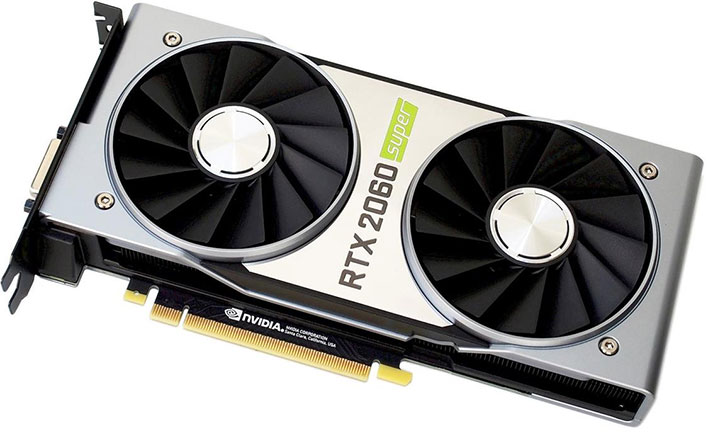NVIDIA GeForce RTX 2060, RTX 2060 Super Rumored To Reenter Market Amid Ampere Drought

Want to party like it's 2019? Fantastic, because there is a rumor going around that NVIDIA is going to re-introduce a couple of graphics cards from two years ago, those being the GeForce RTX 2060 and GeForce RTX 2060 Super. As you probably know, both of those parts are based on the company's previous generation Turing graphics architecture, and not Ampere. So, why do it?
Well for one, we do not know for sure that NVIDIA will actually re-release two previous generation graphics card models. Leaks and rumors can be fun to digest, but are best consumed with an unhealthy dose of salt, because they are not always accurate. That said, a re-introduction of the two Turing parts is at least plausible.
The folks at Overclocking insinuate it is pretty much a foregone conclusion, saying they have heard from "several brands" that those graphics cards are making a comeback. As the story goes, the requisite Turing GPUs to build those cards around have already been delivered to NVIDIA's hardware partners.
This raises several questions. For example, if NVIDIA really is working with its add-in board (AIB) partners to inject more GeForce RTX 2060 and GeForce RTX 2060 Super cards into the market, will they be retail variants, or ultimately sourced to OEMs for inclusion in prebuilt desktops? Will there be any bump in the specifications? And what about pricing?
We do not have the answers to any of those questions. Assuming the rumor is accurate, however, the timing is interesting, with NVIDIA releasing the GeForce RTX 3060 (non-Ti model) to retail in late February, priced at $329. NVIDIA unveiled the upcoming SKU at CES 2021. When it arrives, it will be the most affordable variant of Ampere.
As for the GeForce RTX 2060 and GeForce RTX 2060 Super, it has pretty much disappeared from the market, save for marketplace sellers or are hawking the cards at inflated prices (around $500 and up). It's a tough time for gamers, because the latest hardware is in such short supply, including NVIDIA's full GeForce RTX 30 series lineup.

